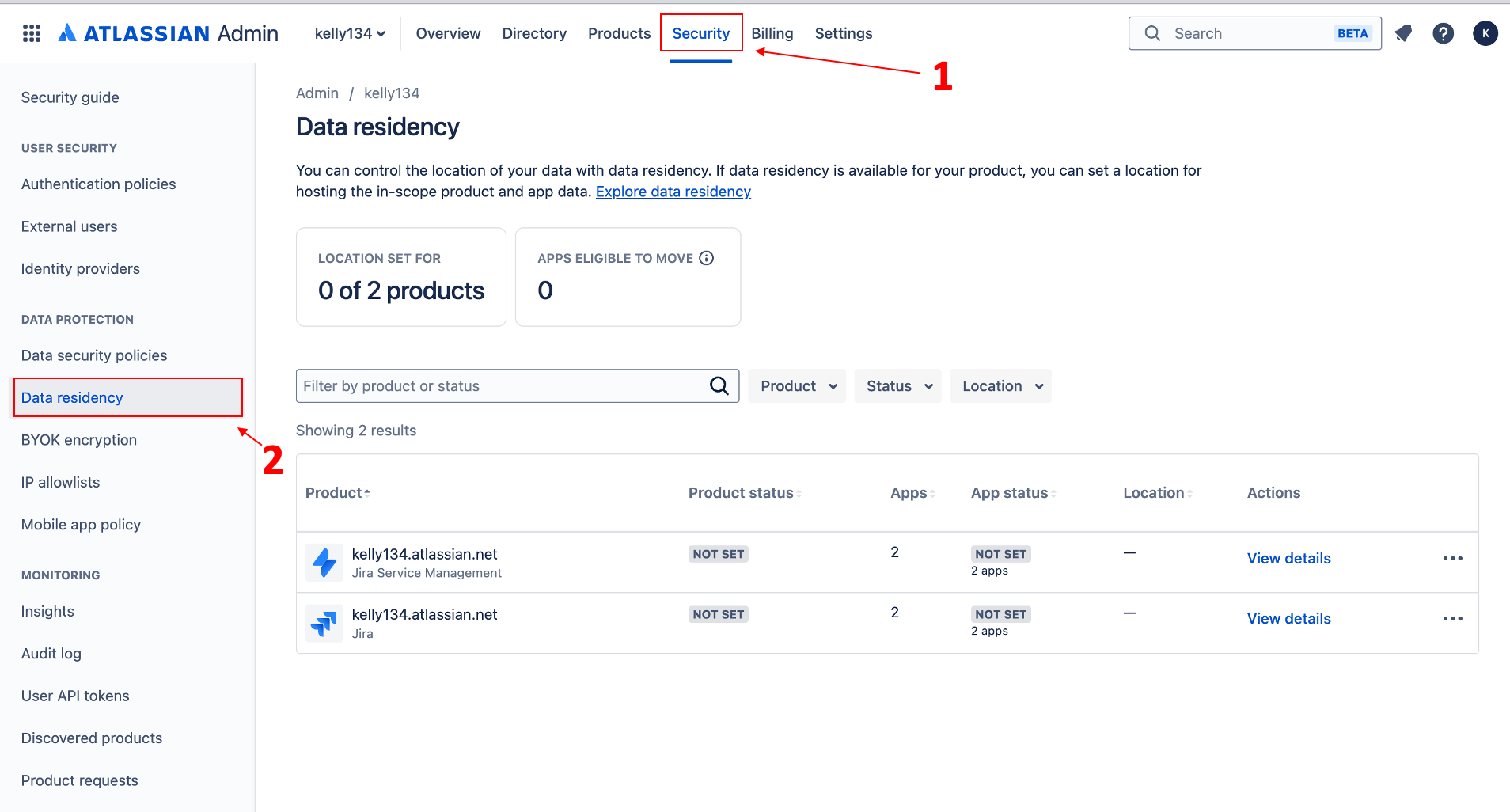Data Residency
Overview
Data residency refers to the ability to define the geographic location where your data is stored and processed. This feature is essential for organizations that need to comply with local data protection laws, industry standards, or internal policies mandating that data remain within specific regions. By managing data residency, you can ensure sensitive information is contained within designated boundaries, thus bolstering security and regulatory compliance.
Key aspects of data residency include:
Geographic Control: Enables you to choose the specific region for data storage, essential for adhering to regional data protection regulations.
Compliance Assurance: Facilitates compliance with laws such as the GDPR in Europe, the CCPA in the United States, and other local data protection standards.
Improved Performance: Storing data closer to your users reduces latency, resulting in faster application performance.
Enhanced Security: Restricting data to defined geographic areas lowers the risk of unauthorized access and data breaches.
Data Residency provides control over where your in-scope product data for Jira, Jira Service Management, Jira Product Discovery, and Confluence is hosted.
You can decide whether your data is distributed globally or stored in a specific geographic location, such as Europe or the US.
For organizations in regulated industries like finance, government, or healthcare, Data Residency is often essential for compliance in a cloud environment. Additionally, it helps meet broader company data management and governance requirements.
Reference: Atlassian document - Data Residency.
AssetIT Adopting Data Residency
AssetIT has implemented the realm pinning capability. The URLs defined as regionBaseUrls control the location when an app is initially installed. After a customer moved a product to a specific location, when an app is installed, the corresponding location from the Connect descriptor will be selected. Even if the product has not been moved to a specific location, the regionBaseUrls is used at app installation time if the app supports the location where the product is provisioned.
AssetIT supports data residency in the following locations:
Checking the Location of Your Data
To see where your in-scope product data is hosted, go to your organization’s administration settings and follow these steps:
Organization Admin permissions are required.
Go to admin.atlassian.com. If you manage multiple organizations, select the one you want to view.
Navigate to Security > Data Residency.

This will open the Data Residency page for your organization, displaying the following information:
Products in your organization along with their status.
Apps associated with your organization and their respective statuses.
Location of each product and the corresponding AWS regions. If a product is pinned to a location, its in-scope data is stored there.
The number of products with a defined location.
The number of apps eligible for location changes.
Data Residency Policy
This policy outlines the data residency approach for AssetIT in compliance with Atlassian's data residency framework.
Data Storage and Management
Atlassian-Managed Data: All in-scope Jira product data is managed and stored by Atlassian.
AssetIT-Managed Data: All AssetIT in-app data and settings are stored in the selected data residency location, ensuring compliance with the chosen geographic requirements.
In-scope Product Data
According to Atlassian, this table presents in-scope product data types that can be pinned and out-of-scope product data that cannot be pinned. For definitions of these data types, please refer to the glossary in this Atlassian document: Understand data residency.
Data Residency Location
AssetIT will store all user-generated content and settings within the specified data residency region to meet compliance and security standards.
For further information about data management and security, visit DevSamurai Trust Center.
.png)